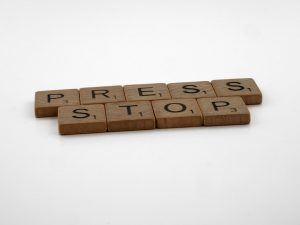Cultivate Calm: Boost Emotional Health and Manage Stress
Discover effective strategies to enhance emotional health and reduce stress. Empower your mind with tools to cultivate lasting calm.
Understanding Stress and Its Impact
What is Stress?
Stress is a natural response of the body to perceived challenges or threats. It triggers a cascade of physiological reactions, including the release of hormones like adrenaline and cortisol.
These hormones prepare the body to face the challenge by increasing heart rate, enhancing focus, and boosting energy levels. While stress can be beneficial in short bursts, helping individuals to perform under pressure, chronic stress can have detrimental effects on both physical and emotional health.
The Physical Impact of Stress
Chronic stress can lead to a variety of physical health issues.
It can weaken the immune system, making the body more susceptible to infections and illnesses. Long-term stress is also linked to cardiovascular problems such as hypertension, heart attacks, and strokes.
Additionally, stress can exacerbate existing conditions like asthma, diabetes, and gastrointestinal disorders. Understanding these impacts is crucial for managing stress effectively and maintaining overall health.
The Emotional and Psychological Effects of Stress
Emotionally, stress can lead to anxiety, depression, and mood swings.
It can affect an individual’s ability to concentrate, make decisions, and maintain relationships. Prolonged exposure to stress can result in burnout, a state of emotional, physical, and mental exhaustion.
Recognizing the signs of emotional distress is important for seeking timely help and implementing stress management techniques.
Stress and Its Influence on Behavior
Stress can significantly influence behavior, often leading to unhealthy coping mechanisms. Individuals under stress may resort to substance abuse, overeating, or social withdrawal as a way to deal with their emotions.
These behaviors can create a vicious cycle, further exacerbating stress and its negative effects. Developing healthy coping strategies is essential for breaking this cycle and promoting emotional well-being.
The Importance of Stress Management
Effective stress management is crucial for maintaining both physical and emotional health.
Techniques such as mindfulness, exercise, and proper time management can help mitigate the effects of stress. Seeking support from friends, family, or mental health professionals can also provide relief and guidance.
By understanding stress and its impact, individuals can take proactive steps to manage stress and enhance their emotional health.
Practical Tips for Managing Stress
Identify Stress Triggers
Understanding what triggers your stress is the first step in managing it effectively. Keep a journal to track your stressors and note any patterns or recurring themes.
This awareness can help you anticipate and prepare for stressful situations, making them more manageable.
Practice Mindfulness and Meditation
Mindfulness and meditation are powerful tools for stress management. Dedicate a few minutes each day to mindfulness exercises, such as deep breathing or guided meditation.
These practices can help calm your mind, reduce anxiety, and improve your overall emotional health.
Maintain a Healthy Lifestyle
Regular physical activity, a balanced diet, and adequate sleep are crucial for managing stress. Exercise releases endorphins, which are natural mood lifters.
Eating a nutritious diet and getting enough rest can enhance your resilience to stress and improve your emotional well-being.
Set Realistic Goals
Setting achievable goals can prevent feelings of overwhelm. Break larger tasks into smaller, manageable steps and prioritize them.
This approach can help you focus on what is most important and reduce stress associated with feeling overburdened.
Establish Boundaries
Learning to say no and setting clear boundaries is essential in managing stress. Communicate your limits to others and ensure you have time for self-care.
Protecting your personal time can prevent burnout and maintain your emotional health.
Seek Social Support
Connecting with friends, family, or support groups can provide a sense of belonging and reduce stress. Sharing your feelings with others can offer new perspectives and help you cope with challenges more effectively.
Don’t hesitate to reach out for support when needed.
Engage in Relaxation Techniques
Incorporate relaxation techniques such as yoga, tai chi, or progressive muscle relaxation into your routine. These activities can help reduce stress and promote a sense of calm.
Experiment with different techniques to find what works best for you.
Limit Exposure to Stressors
Whenever possible, minimize your exposure to unnecessary stressors. This might involve limiting time spent on social media, avoiding negative news, or delegating tasks at work.
By controlling your environment, you can reduce stress and enhance your emotional health.
Importance of Emotional Well-being
Understanding Emotional Well-being
Emotional well-being refers to the ability to manage emotions, cope with stress, and maintain a positive outlook on life. It is a crucial component of overall mental health, influencing how individuals perceive and interact with the world around them.
Emotional well-being is not just the absence of negative emotions but the presence of positive characteristics such as resilience, self-awareness, and the ability to experience joy.
Impact on Stress Management
Effective stress management is closely tied to emotional well-being. When individuals maintain a healthy emotional state, they are better equipped to handle stressors that arise in daily life.
Emotional well-being provides the tools needed to navigate challenges without becoming overwhelmed. Techniques such as mindfulness, emotional regulation, and cognitive restructuring are essential for managing stress and are more accessible to those with a strong foundation in emotional health.
Enhancing Emotional Health
Improving emotional well-being involves developing strategies that promote mental resilience and emotional intelligence.
Practices such as regular physical activity, maintaining social connections, and engaging in hobbies can significantly enhance emotional health. Additionally, seeking professional support through therapy or counseling can provide valuable insights and coping mechanisms for those struggling with emotional challenges.
Benefits of Emotional Well-being
Individuals with high emotional well-being experience numerous benefits, including improved relationships, greater life satisfaction, and enhanced physical health.
Emotional well-being can lead to better decision-making, increased productivity, and a stronger ability to cope with adversity. By fostering emotional health, individuals can create a more balanced and fulfilling life, reducing the impact of stress and promoting overall well-being.
Building Resilience and Coping Strategies
Understanding Resilience
Resilience is the ability to bounce back from adversity, stress, or trauma.
It is not an inherent trait but rather a skill that can be developed over time. Building resilience involves fostering a positive outlook, maintaining flexibility, and developing problem-solving skills.
By understanding and enhancing these aspects, individuals can better manage stress and maintain emotional health.
Developing Emotional Awareness
Emotional awareness is crucial for resilience. It involves recognizing and understanding one’s emotions, which allows individuals to respond to stress more effectively.
By being aware of emotional triggers and responses, people can develop healthier coping strategies. Techniques such as mindfulness meditation and journaling can enhance emotional awareness, providing a foundation for resilience.
Strengthening Social Connections
Having a strong support network is a key component of resilience.
Social connections provide emotional support, practical assistance, and a sense of belonging. Building and maintaining relationships with family, friends, and community can buffer against stress and promote emotional well-being.
Engaging in group activities and reaching out for support when needed are effective ways to strengthen these connections.
Practicing Self-Care
Self-care is an essential aspect of building resilience. It involves taking proactive steps to maintain physical, emotional, and mental health.
Regular exercise, a balanced diet, adequate sleep, and relaxation techniques such as yoga or deep breathing can reduce stress levels and enhance overall well-being. Prioritizing self-care helps individuals manage stress more effectively and build resilience over time.
Adopting Positive Thinking
Positive thinking plays a significant role in resilience.
It involves maintaining an optimistic outlook and focusing on solutions rather than problems. By challenging negative thoughts and reframing them into positive ones, individuals can reduce stress and improve emotional health.
Techniques such as cognitive-behavioral therapy (CBT) can aid in developing a positive mindset, fostering resilience in the face of challenges.
Setting Realistic Goals
Setting and achieving realistic goals can enhance resilience by providing a sense of purpose and accomplishment. Breaking down larger goals into manageable steps can prevent overwhelm and reduce stress.
By celebrating small successes and learning from setbacks, individuals can build confidence and resilience, enabling them to cope more effectively with future challenges.
FAQ
Q1: How long does it typically take to see results from stress management techniques?
A1: The timeline for seeing results from stress management techniques can vary greatly depending on the individual and the methods used. Some people may notice improvements in their stress levels within a few days of implementing new techniques such as deep breathing or mindfulness meditation. However, for more comprehensive strategies like cognitive-behavioral therapy or lifestyle changes, it may take several weeks or even months to experience significant benefits. Consistency and patience are key, as regular practice of stress management techniques is crucial for long-term emotional health.
Q2: What are some common concerns people have when starting stress management practices?
A2: One common concern is skepticism about the effectiveness of stress management practices, especially if previous attempts have not yielded noticeable results. Others worry about finding the time to integrate these practices into their already busy schedules. Additionally, some individuals may feel overwhelmed by the variety of techniques available and unsure about which ones to try. It’s important to start with simple, manageable steps and gradually incorporate more practices as you become comfortable. Seeking guidance from a mental health professional can also help tailor a stress management plan to your specific needs.
Q3: Can stress management techniques be effective for everyone, regardless of their lifestyle or work environment?
A3: While stress management techniques can be beneficial for most people, their effectiveness can depend on how well they are suited to an individual’s lifestyle, personality, and work environment. For example, someone with a high-paced job might find short, frequent mindfulness practices more feasible than lengthy meditation sessions. It’s important to experiment with different techniques to find what works best for you. Customizing stress management strategies to fit your unique circumstances can enhance their effectiveness and make them easier to maintain over time.
Takeaway
“Ready to boost your well-being? Start by incorporating a simple new habit into your routine today! Share this article with friends who could benefit, and explore WHO or other trusted resources for more evidence-based tips. Together, let’s take small steps towards a healthier lifestyle. Your future self will thank you!” As outlined in Reuters’ recent publication,
References
- Calm is a wellness company offering evidence-based meditation tools for stress and sleep management.
- Headspace partners with health systems to integrate mindfulness into clinical care.











Comments